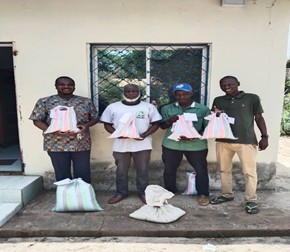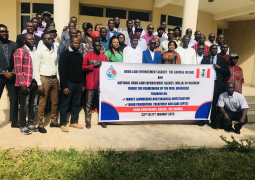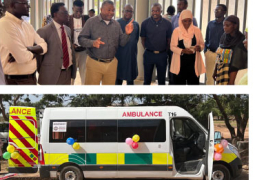
This persistent reliance on imports is being worsened by low productivity, intergenerational poverty, food and nutrition insecurity, and thus hampering the commercialisation of rice farming in particular.
To address this challenge, the Gambia Inclusive and Resilient Agricultural Value Chain Development Project (GIRAV)—funded by the World Bank and the Government of The Gambia—is making significant strides in improving access to high-quality, climate-resilient maize and rice seeds. The project is spearheading technology transfer initiatives to promote the adoption of improved climate-smart technologies, innovations, and advisory services tailored to the needs of smallholder farmers and agri-SMEs.
The overarching goal of GIRAV is to boost productivity, generate surplus for commercialisation, and increase incomes for producers, particularly women and youth. The project’s technology transfer component focuses on climate-smart seed packages that enhance resilience and reduce greenhouse gas emissions. These include high-yielding, early-maturing, drought-resistant, and salt-tolerant seed varieties.
In collaboration with the West and Central African Council for Agricultural Research and Development (CORAF), GIRAV facilitated the sourcing of 450 metric tonnes of certified maize seeds and 300 metric tonnes of certified rice seeds from 2022 to 2024. These seeds were given to smallholder farmers in the quest to increasing production and transitioning to commercial farming. CORAF has also supported the provision of breeder maize and rice seeds to the National Agricultural Research Institute (NARI) for multiplication into foundation seeds.
On Tuesday, 1st July 2025, NARI officially handed over 40kg of seven maize varieties and 25kg of two rice varieties to the National Seed Secretariat (NSS) for foundation and certified seed production. The brief but significant ceremony took place at NARI Headquarters in Brikama.
Dr Demba Jallow, Director General of NARI, presided over the event. “Today’s event is a proud testament to the value of partnership and the translation of project support into practical solutions that directly benefit our farmers. GIRAV is recognised for its role in this achievement,” he stated. Dr Jallow also commended the strong working relationship between NARI and NSS, urging the latter to safeguard the seeds and ensure their effective use.
Receiving the seeds on behalf of the NSS Director General, Mr Momodou Sabally, Seeds Officer at NSS, expressed gratitude to GIRAV, CORAF, and NARI. He pledged that the NSS would multiply the seeds into foundation and certified varieties to ensure widespread dissemination and adoption by Gambian farmers. “This is indeed the right approach and direction for achieving national self-sufficiency in rice by 2030,” he affirmed.
Dr Lamin Dibba, Director of Research at NARI, highlighted the critical role of breeder seed production in maintaining varietal purity. He called for increased support from development projects to sustain NARI’s breeder seed programme.
Mr Ousman M. Jarju, Director of the Food Chemistry and Aflatoxin Research Directorate and GIRAV Focal Point at NARI, reiterated the importance of research in achieving higher yields and national food security. He emphasised that continued investment in research and innovation is essential to building a resilient and self-sufficient agricultural sector.
Read Other Articles In National News
LGCI: Commissioner Faal harps on importance of finance committee
Nov 1, 2023, 12:03 PM

40 DLEAG officers undergo financial investigation, money laundering training
Jan 26, 2023, 1:01 PM



